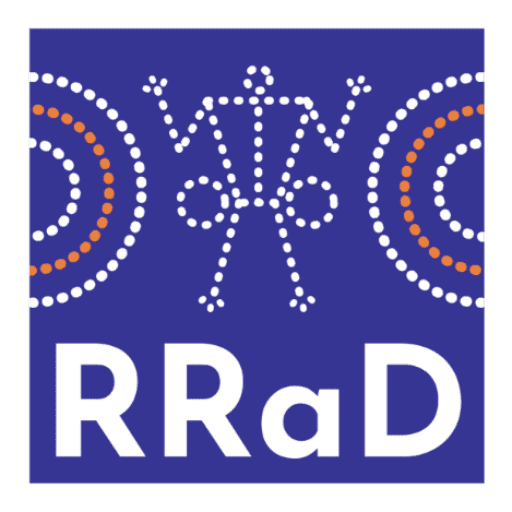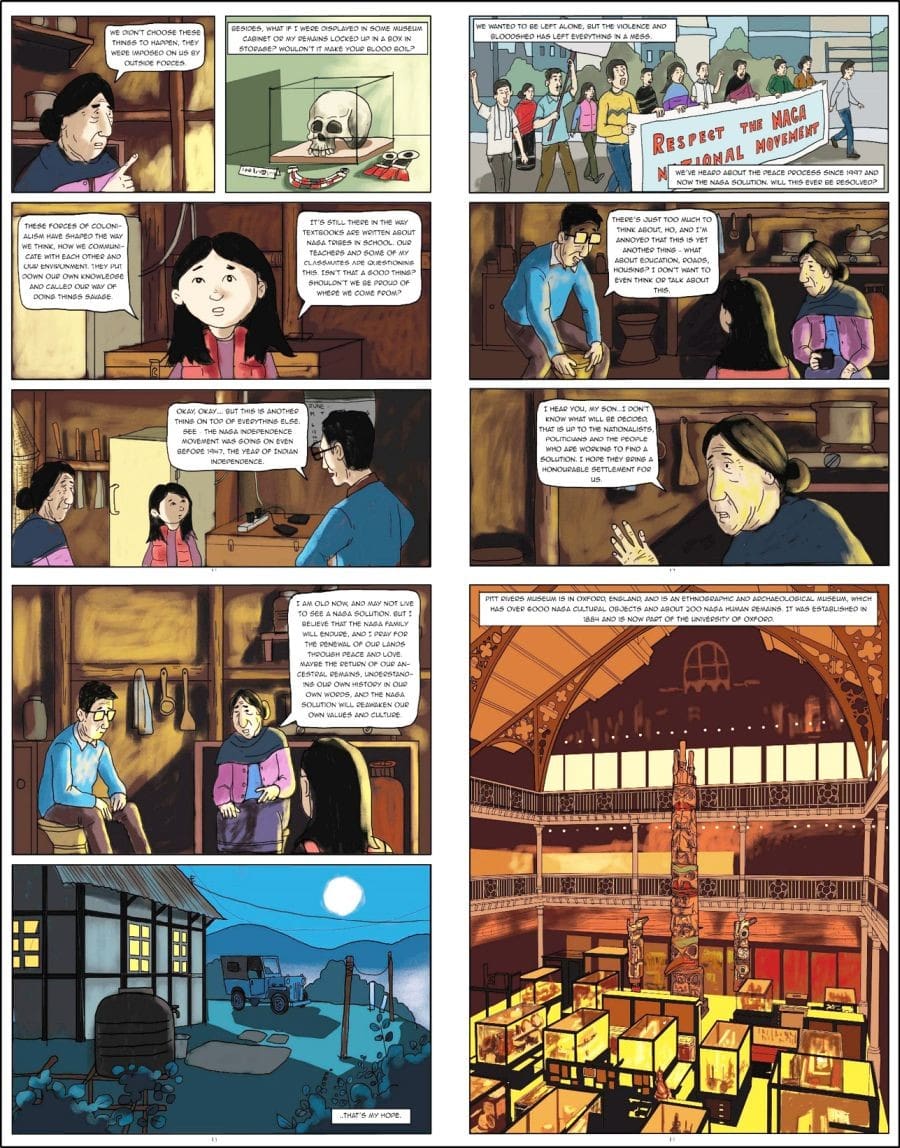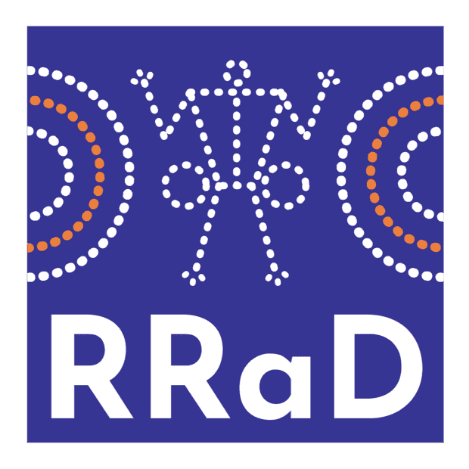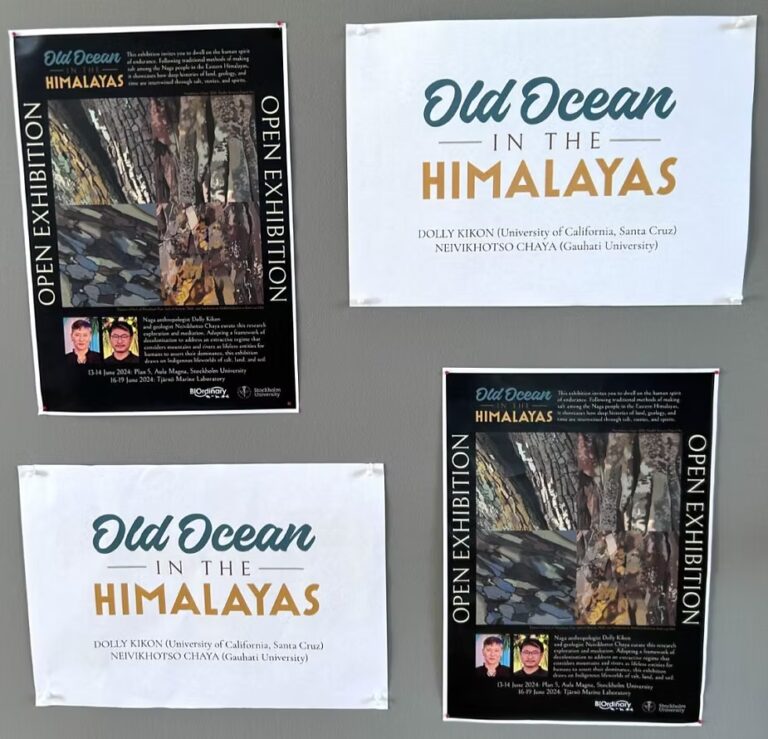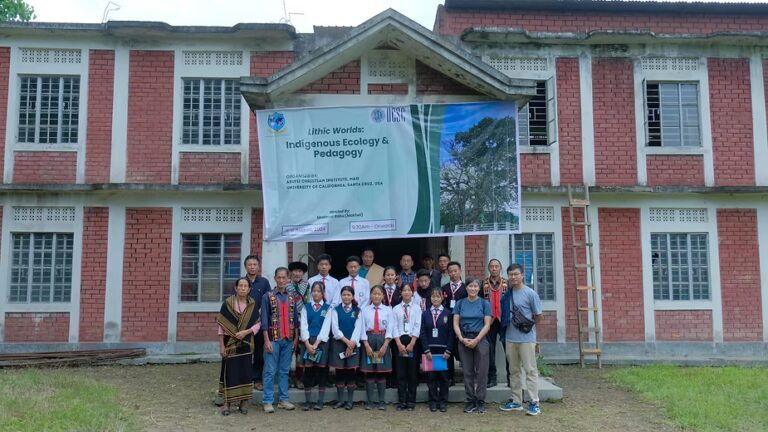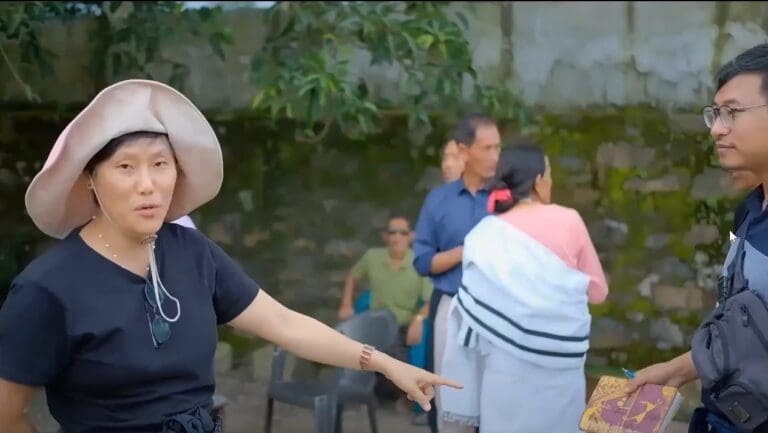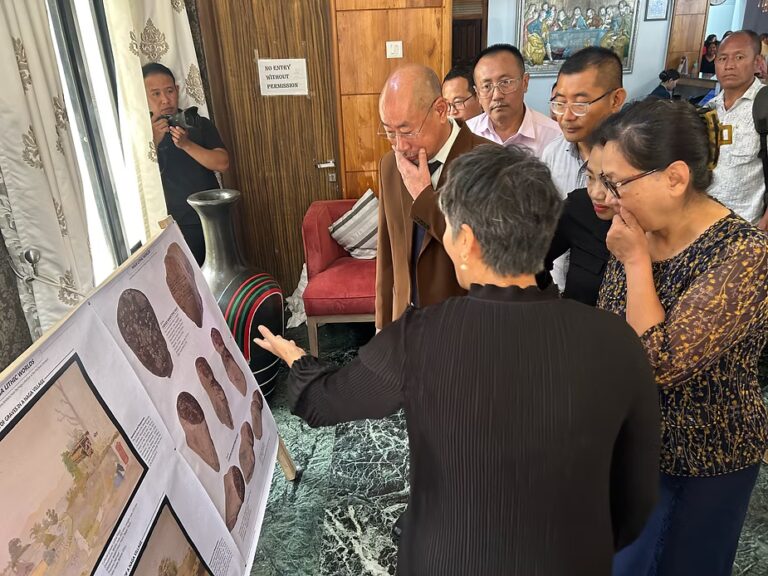‘A Path Home,’ a graphic novel on Naga Repatriation by Arkotong Longkumer and Meren Imchen was released at a virtual launch on February 17. The book is published by Recover, Restore and Decolonise (RRaD) and the North Eastern Social Research.
Launching the book, Laura Van Broekhoven, Director of Pitt Rivers Museum and Professor of Museum Studies, Ethics and Material Culture at the University of Oxford congratulated the duo for ‘bringing the Naga homeland to our homes’ through this ‘spectacularly beautiful novel.’
Acknowledging the relationship with the Nagas over the last two and a half years in the process of repatriation and decolonisation, Broekhoven said that many conversations still need to take place on how to carve out this process and in ‘really building this relationship.’
Sharing his experience on the graphic novel, Dr Arkotong Longkumer, Senior Lecturer in Modern Asia at the University of Edinburgh, UK recalled how the Naga elders often said that this was not a project, but ‘a journey.’
The narratives came out through different conversations with people, including mixed voices on many levels. Longkumer said that they don’t have all the answers, and this is just the beginning of the journey, while adding that part of the journey includes what repatriation is all about, and how some aspects of it are captured in the novel.
Conceptualising the whole graphic novel, the duo was quite clear about the characters, on whom to involve in the storyline i.e. intergenerational. The first scene starts with the grandmother and the granddaughter speaking about ‘repatriation, decolonisation and the human remains.’
Longkumer said that the scenes also portray different locations and addresses pressing issues, such as the “role of churches, how do we understand repatriation in a militarized landscape and also the importance of human dignity as a very important part of the repatriation process.”
The characters one will encounter are based on natural features of the landscape. For instance, ‘Kimiro’ (character) represents embers of the house, while ‘Sirala’ is a star. All characters embody natural things and outlive us, which gives the notion that this is just a journey, said Longkumer while also expressing hope that the different generations will reflect on this issue and that every generation will retrospect on what it means for them on this entire journey. “I hope it makes sense to you as you go through them,” he added.
Longkumer acknowledged all the partners, friends and collaborators from all over the world including the Economic and Social Research Council Impact Acceleration Grants (ESRC IAA) for funding the project, Pitt Rivers Museum, Forum for Naga Reconciliation (FNR) and the RRaD team (Recover, Restore and Decolonise).
For the illustrator Meren Imchen, the project seemed remarkable and quite daunting at first to plan out such a complex process of repatriation to fit into a visual narrative of a 50-page novel. Imchen said that a graphic novel involves many stages, the first being the script which Dr Arkotong had written. Then came his visual technical part which he started by breaking up the script, and drawing small thumbnail sketches. Then came the process of penciling or inking stage.
Imchen added local flavour to the visualisation aspect, keeping in mind the nuances of the region so that the Naga communities as a whole can relate to it. He was very particular with the colors and conscious with the mood of the locality and the entire concept.
Earlier, during the virtual book launch, Prof Lesley McAra, Director of IASH & Head of ESRC IAA, The University of Edinburgh gave the opening remark while short messages of solidarity were given by Prof Sanjay Barbora and Gam Shimray.
Rev Dr Wati Aier said the prayer and gave words of encouragement. The event was hosted by Dr Dolly Kikon and Talilula.
For the purpose of open access, the authors have applied a Creative Commons Attribution (CC BY) licence and is available to download for free in the RRaD website.
The graphic novel is the second project on the process of repatriation by the RRaD connecting with the Pitt Rivers Museum and the FNR.
First published in The Morung Express on 18th February 2023
Link: https://morungexpress.com/a-path-home-graphic-novel-on-naga-repatriation-released
